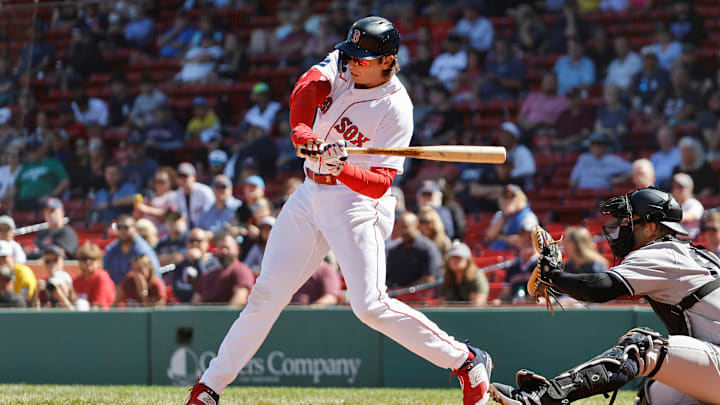Bob Iger and his cronies at ESPN have figured out yet another way for the 2024 Boston Red Sox to disappoint everyone.
Earlier this week, ESPN placed the Red Sox atop their rankings of teams poised for a breakout in '24, utilizing a proprietary metric created by ESPN called The Breakout Index (BRK). I'm sure many of you reading (and David Byrne) are asking "How did we get here?". I'll let Bradford Doolittle, the author of the ESPN article, explain.
"We identified traits most associated with MLB teams who have made similar jumps (those include prospect rankings, projections, roster age, organizational record, previous leap, luck, and free agent spending) and combined them into a single number."Bradford Doolittle, ESPN
Since taking many different factors into consideration and distilling it down into a single number has made baseball analysis much easier and has never led to any disagreements ever, we should just pencil in the Red Sox as division champions and expect October baseball, right?
Perhaps we should pump the brakes a little. BRK uses 100 as a baseline rating, much like how OPS+ is calculated for batters (anything above 100 is considered above average), and relies on data that goes back to 2007 to compile its numbers. According to the article, the formula used predicted both the Texas Rangers and Arizona Diamondbacks to breakout in 2023 (good picks!), and that six teams met the "breakout" criteria in total. The article then dives into the teams it predicts to break out for 2024, and lo and behold, your Red Sox found themselves with a BRK of 106.5.
ESPN thinks the Red Sox will break out in 2024, but do Boston fans?
The main reasoning behind the Red Sox finding themselves here is the weighted organizational record from the minor league teams the past three seasons. Without trying to dive too much into the weeds, basically, the prospects are doing super well, and the model thinks that means the young guns will carry the Red Sox to a solid 2024. While it's great to fantasize about the idea of Red Sox prospects all banding together to lift the team out of the basement of the AL East (Triston Casas and his painted nails will lead them to the promised land one day), it feels to me that all this article tries to do is help justify the lack of spending from our front office this offseason.
Guys and gals, I don't know if you've noticed, but this offseason has not gone well for the Red Sox. An absolute lack of offseason spending, a front office that seemingly no longer cares about the fans, and a potential slash in payroll, along with the same reasons that caused the last guy in charge to get fired are all factors that are adding up to a half-filled Fenway Park come August. While I'm all for letting the younger generation take charge, that can't be the only strategy we have. If one of those guys fails, the house of cards can come tumbling down.
What's also confusing is that Doolittle offers recent teams to compare the findings of the model to real-life evidence. Doolittle used the 2019 Minnesota Twins as his example for the Red Sox, and even though the Twins won over 100 games in 2019 and won their first playoff series in 20 years in 2023, I don't think that getting compared to a team that consistently misses the mark when it comes to major success is anything to hang your hat on.
There are some reasons to have hope this Red Sox season won't be a truly unmitigated disaster, but if you want to let these factors outweigh the rest and hold some optimism for the 2024 season, be my guest. Forgive us if we take this new metric that has, according to the originator, a 36% success rate of correctly identifying breakout teams with a grain of salt this go-around.
